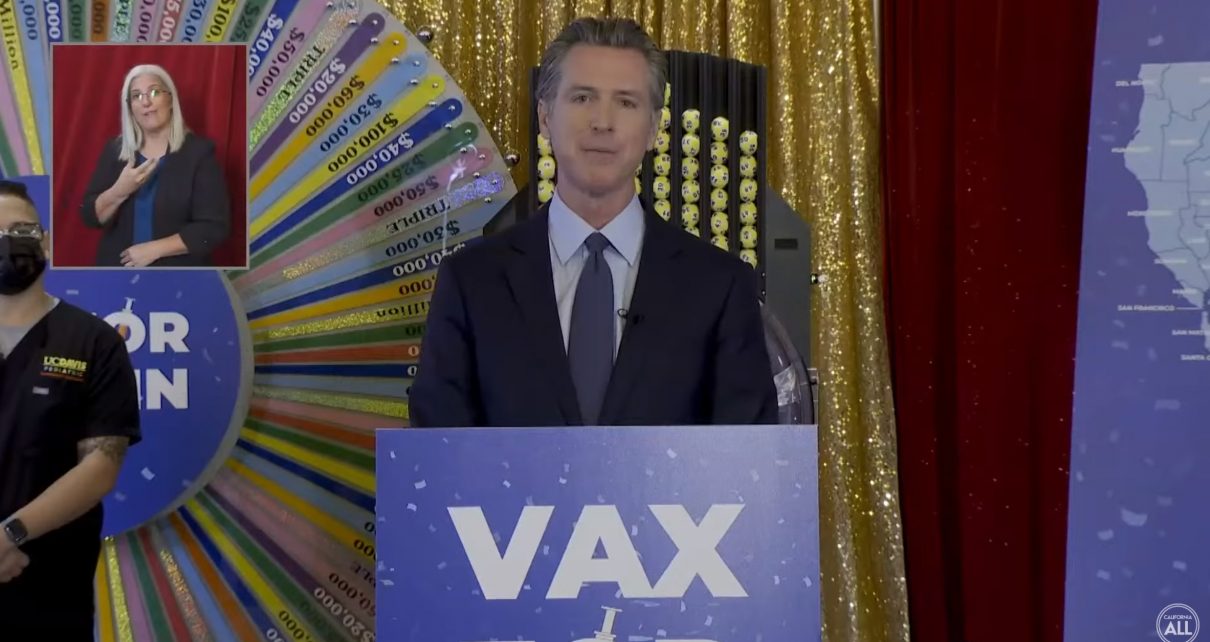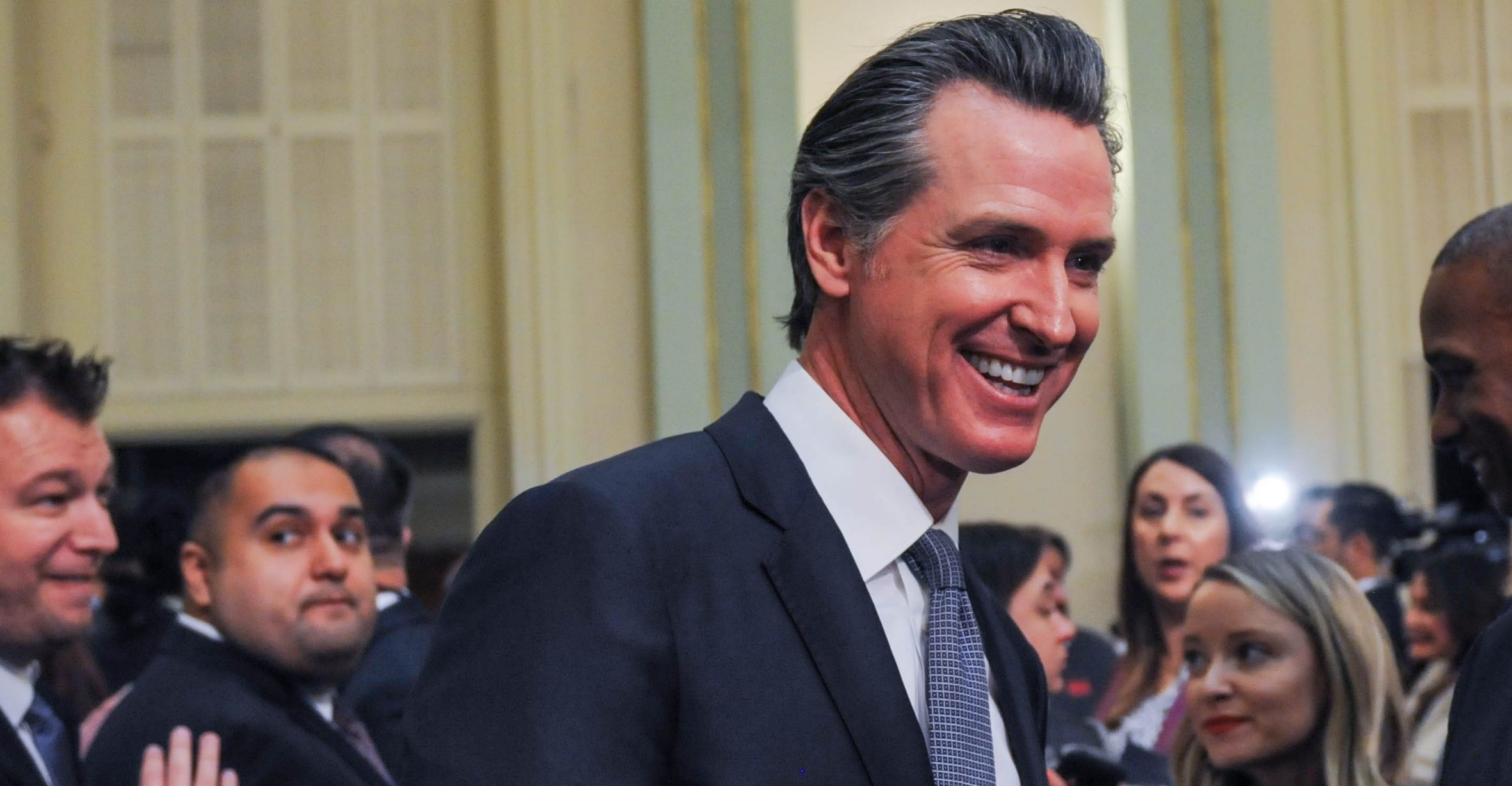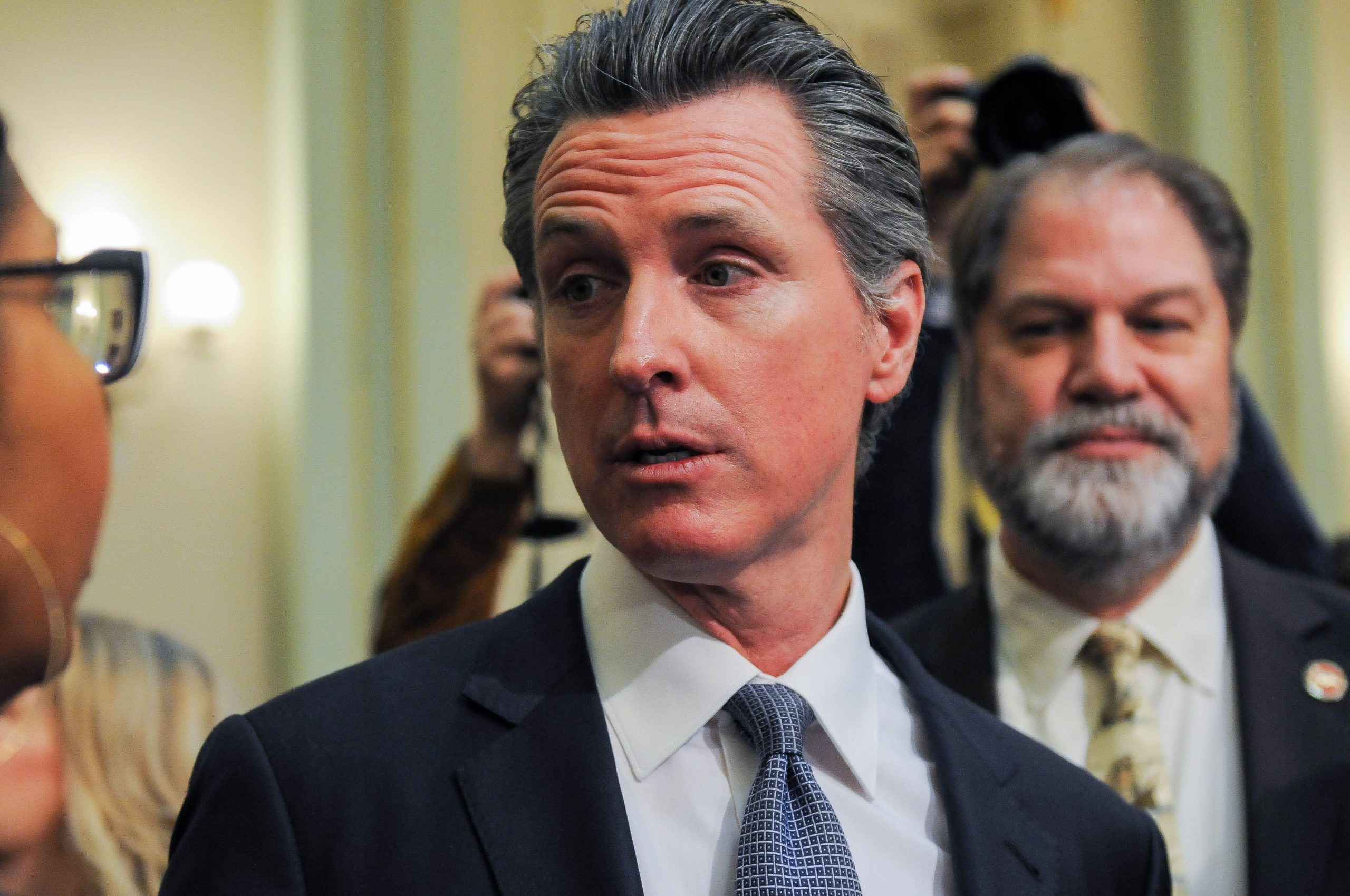
Governor Gavin Newsom "Vax for the Win" lottery drawing. (Photo: gov.ca.gov)
Governor Newsom Enacts Executive Order That Allows More Time For State Body Teleconferenced Meetings
For some lawmakers and state workers, making decisions more out of public view has been beneficial
By Evan Symon, January 6, 2022 2:06 pm
Governor Gavin Newsom signed an Executive Order on Thursday allowing state bodies to continue to hold teleconferenced public meetings instead of in-person public meetings through the end of March due to the recent surge of COVID-19 Omicron variant cases.
In 2020, several laws were passed allowing public meetings at the state and local level to be held via teleconferencing rather than in-person, bypassing public meeting laws such as the Brown Act and the Bagley-Keene Open Meeting Act. As COVID cases began dropping in the latter half of 2021, newer orders and bills put sunset dates on allowing teleconferencing meetings. AB 361, passed in September of last year, put in many end dates, including a January 1, 2024 end date for teleconferencing for local agencies and a January 31, 2022 end date for state and legislative bodies. An Executive Order signed by Newsom only days after signing AB 361 helped solidify the dates by making any local decisions on meetings being beholden to AB 361.
However, the rise of the omicron COVID-19 variant, which is averaging 28,000 new cases in California each day, has made many lawmakers skittish of returning to in-person meetings, especially larger public meetings that could prove to be a COVID-19 risk. In response, Governor Newsom extended AB 361 on Wednesday, allowing public meeting teleconferences to continue through March 31st, giving them an extra two months in the hopes that new COVID-19 cases would go down significantly by then.
“Governor Gavin Newsom today signed an executive order to protect Californians amid increasing COVID-19 case rates and hospitalizations driven by the fast-spreading Omicron variant,” said the Governor’s office in a press release on Wednesday. “The order extends the sunset of AB 361, which the Governor signed in September to extend the flexibilities provided in a prior executive order enabling public agencies to meet remotely during the COVID-19 emergency. Under the order signed today, state bodies are permitted to continue holding public meetings via teleconference through March 31, 2022.”
While in-person meetings are now expected to resume in April, it is likely that the order will be extended again due to possible future surges, new variants appearing, and other factors that could lead teleconferencing meetings later into the year.
“Not a lot of people like teleconferencing meetings,” explained Sarah Keene-Smith, a city government meeting organizer in Southern California to the Globe on Thursday. “For some lawmakers and state workers, making decisions more out of public view has been beneficial, especially if there is a policy or something they’re trying to sneak in. But a lot of people also want transparency. Even if they themselves don’t want to go to these meetings, they want the press to report on it, or concerned citizens to ask questions during these meetings, and generally want people to still be involved.”
“This Executive Order is being made out of caution for the COVID surge, but it’s also keeping the public out for a few more months.”
Following the Executive Order on Wednesday, state body teleconferencing is due to end on March 31st. Extensions of other forms of teleconferenced meetings may also occur soon.
- Bill to Require Law Enforcement Disclosure if AI Was Used To Help Write Reports - August 7, 2025
- Gov. Newsom Files FOIA Request To ‘Expose True Cost’ Of L.A. Federal Troop Deployment for Anti-ICE Riots - August 6, 2025
- California Redistricting: How Newsom’s Plan Will Demolish Hard Fought GOP Gains - August 6, 2025




A very sensible move by our fine governor.